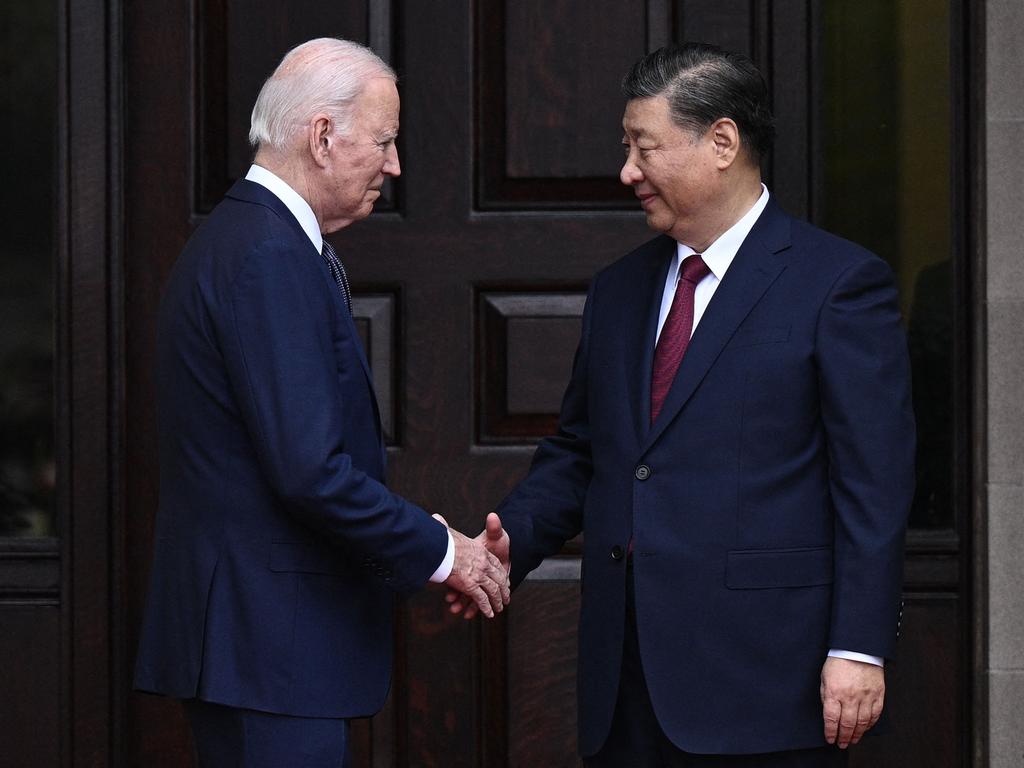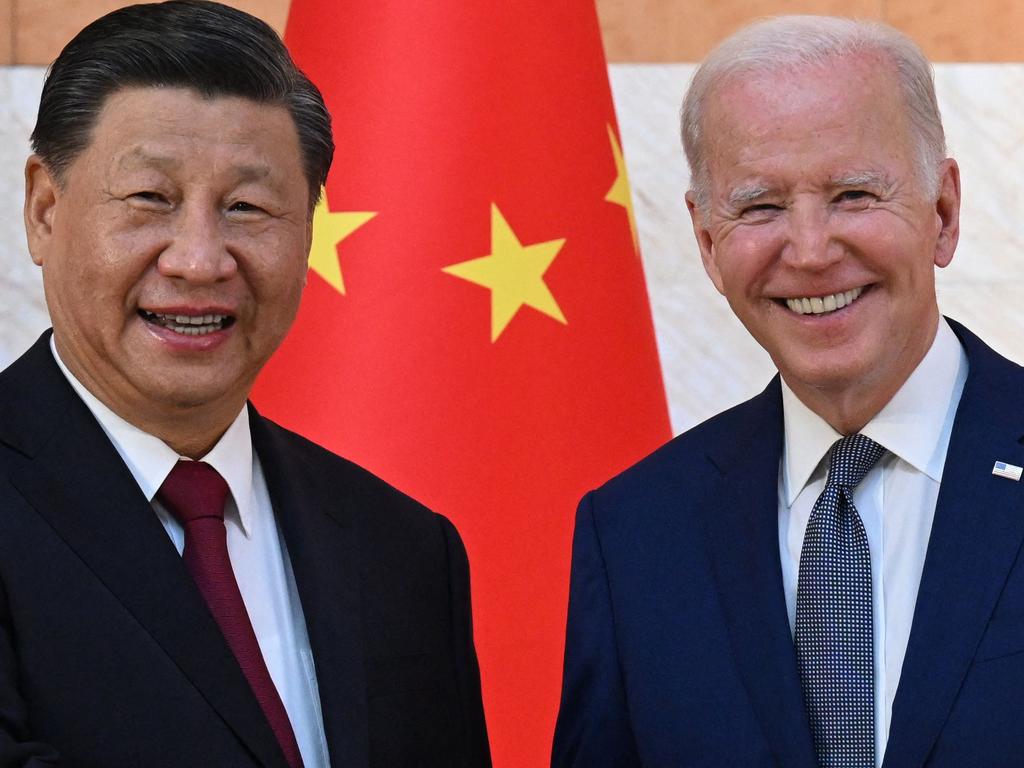Maritime incidents and artificial intelligence topped agenda in Biden-Xi talk
Joe Biden advised Xi Jinping to refrain from continued military provocations around Taiwan and the Philippines in their first one on one conversation this year.

US President Joe Biden has urged Chinese counterpart Xi Jinping to refrain from continued military provocations around Taiwan and The Philippines, and to rethink his support for Russia, in a “candid and constructive” phone call.
In what was their first one-on-one communication since the two leaders met at a summit in California in November, Mr Biden and Mr Xi spoke directly in a phone call officials said included a discussion of regulation around artificial intelligence, China’s promised efforts to crack down on narcotics trade, and how to deal with an unpredictable North Korea.
“President Biden emphasized the importance of maintaining peace and stability across the Taiwan Strait and the rule of law and freedom of navigation in the South China Sea,” the official read-out of the call said.
“They reviewed and encouraged progress on key issues discussed at the Woodside Summit, including counter narcotics cooperation, ongoing military-to-military communication, talks to address AI-related risks, and continuing efforts on climate change and people-to-people exchanges,” it added, referring to the two leaders’ meeting in California in November.
The call, which took place Tuesday morning local time (Wednesday AEDT), came at a low ebb for Beijing-Washington relations, dragged down by disagreements over Taiwan, global trade, and Beijing’s support for Russia in its invasion of Ukraine.
It came ahead of the inauguration of Taiwan’s president-elect, William Lai, who was far from Beijing’s first choice to lead the island democracy, on May 20 after elections held in January, prompting concern about further Chinese military provocations.
It also occurred weeks since the Chinese coast guard vessels confronted Philippines vessels around the Second Thomas Shoal, territory China claims without any basis in international law.
“[The president] raised concerns over the PRC’s support for Russia’s defense industrial base and its impact on European and transatlantic security, and he emphasized the United States’ enduring commitment to the complete denuclearization of the Korean Peninsula,” the readout said.
China has refrained from sending lethal weapons for Russia’s war in Ukraine following repeated US warnings that such a move would present a major challenge for relations between Washington and Beijing. But China has found other ways to strengthen Russia’s defense capability and indirectly help Moscow’s military campaign in Ukraine, the senior administration official told reporters.
Mr Biden was hoping to discuss the resumption of routine US to Chinese military communications, Hong Kong’s autonomy, and Beijing’s human rights, and how the CCP can use its influence with Iran to being about a cessation of Houthi missile attacks in the Red Sea, the official told reporters ahead of the call.
In January US National Security Adviser Jake Sullivan, after a long discussion with Chinese Foreign Minister Wang Yi in Bangkok, said the two governments would “fairly soon” set up a call between the two Presidents, which should occur “this spring”.
The two men are assumed not to have the best relationship after Mr Biden twice publicly called Mr Xi a “dictator” and reports the Chinese leader has in the past refused to take the US President’s calls.
“At Woodside (in November) the two leaders agreed to maintain regular open lines of communication to responsibly manage competition and prevent unintended conflict. And this call is really part of that ongoing effort,” the senior official said.
Mr Biden said the most reassuring message he had taken away from that meeting was that they could “pick up the phone and call one another and we’ll take the call. That’s important progress”.






To join the conversation, please log in. Don't have an account? Register
Join the conversation, you are commenting as Logout